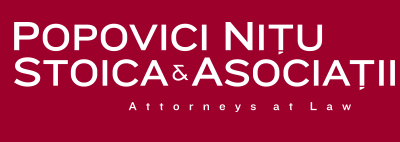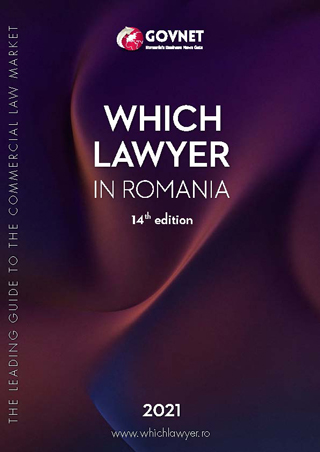- About Us
-
Expertise
- Banking & Finance
- Capital Markets
- Competition & Antitrust
- Corporate & Commercial
- Data Privacy
- Employment & Pensions
- Energy & Natural Resources
- Gambling & Betting
- Healthcare & Pharmaceuticals
- Insurance
- Intellectual Property
- International Arbitration
- Litigation
- Mergers & Acquisitions
- Project Finance/PPP, Concessions & Infrastructure
- Public Procurement
- Real Estate
- Restructuring & Insolvency
- Sports Law
- Tax
- Telecommunications, Media & Technology
- Transports & Logistics
- White Collar Compliance & Defense
- Our team
- Careers
- Publications
- News and Press
- Contact
Articles
Which Lawyer in Romania 14th edition
PPP
PPPs: a long-expected option for Romania

Ramona Pentilescu, Managing Associate
Romanian authorities have been struggling with kicking off PPPs in Romania for more than a decade, with the first piece of dedicated legislation being adopted in 2010, consequently further on amended, repealed and restated in 2016 and then 2018.
Although the current legal framework - constituted by Government Emergency Ordinance no. 39/2018 on public private partnership, with subsequent amendments (“GEO no. 39/2018”) - has been better adapted to the economic realities and specific technical implementation principles of PPPs, there are still no successfully implemented PPPs. This stall might not be due to lack of interest from either private or public sector, but rather to lack of know-how in the public sector (proven by recent unsuccessful attempts to initiate large PPPs projects), causing reluctance for “breaking the ice in uncharted territory” on both sides.
Continue reading
ENERGY
Access to the EU Modernization Fund is a true opportunity for the Romanian Energy Sector

Florian Nițu, Managing Partner
On September 14, 2021, the Romanian Ministry of Energy (“ME”) has publicly announced that it has submitted the first applications to the European Investment Bank for attracting financing from the EU Modernisation Fund.
Under EU Regulation no. 100/2020, by 30 November of each year, each beneficiary member state shall provide to the European Investment Bank (EIB) and the Investment Committee with an overview of investments in respect of which it intends to submit investment proposals in the next two calendar years. Although the beneficiary member states may submit investment proposals to the EIB and the Investment Committee at any time during a calendar year, the EIB and the Investment Committee asses the investment proposals submitted by the beneficiary member states only on a biannual basis.
With this in mind, one should however consider that the Modernization Fund is being set to operate under the responsibility of the beneficiary member states, as per article 10d paragraph 3 of the ETS Directive. As such, each jurisdiction is expected to prepare local regulations transposing the ETS Directive.
While in Romania there is currently a tremendous interest in both public and private sectors for getting access to the Modernization Fund, the ETS Directive is not yet transposed. In fact, there is not even a draft official regulation released for public consultation or available under the decisional transparency section of the Ministry of Economy. We found though one remote media reference of a draft in progress.
Continue reading
WHITE COLLAR CRIME
The era of internal investigations: how attorney-client privilege protection can make it or break it

Alexandru Ambrozie, Partner
Internal investigations may be old news, but they will steal the spotlight again with the approach of the deadline for the implementation of the Whistleblowing Directive (December 2021).
In light of this, here is a handbook on designing and conducting internal investigations and why attorney-client privilege protection is a key aspect.
Although companies and organizations have had enough reasons so far to conduct internal investigations, such as (a) receiving search warrants, subpoenas, or other requests for information from authorities; (b) employees called as witnesses by the criminal authorities; (c) audit findings; (d) red flags in acquisition due diligence; (e) complaints from vendors, business partners, customers, or competitors, we can expect the number of internal investigations to increase. As a consequence of the protection to be provided to whistleblowers, more internal reports will be filed and they will have to be handled properly by the company and as soon as possible, in order to avoid external reports or, even, media exposure.

Ana Stoenescu, Senior Associate
You might be thinking this will not happen to my company, but the bad news is that, despite implementing the most proper and effective compliance and training programs, companies and organizations still encounter allegations of wrongdoings or misconduct which call for some level of inquiry.
However, we should not forget the many advantages that conducting an internal investigation can bring: limiting potential exposure, retaining customers, preventing or significantly reducing sanctions imposed by the regulatory or criminal authorities, possibly avoiding intrusive criminal investigations. Furthermore, knowledge is power, so gathering information on the matter will ensure some level of control over any possible outcomes.
Continue reading
Download Article











